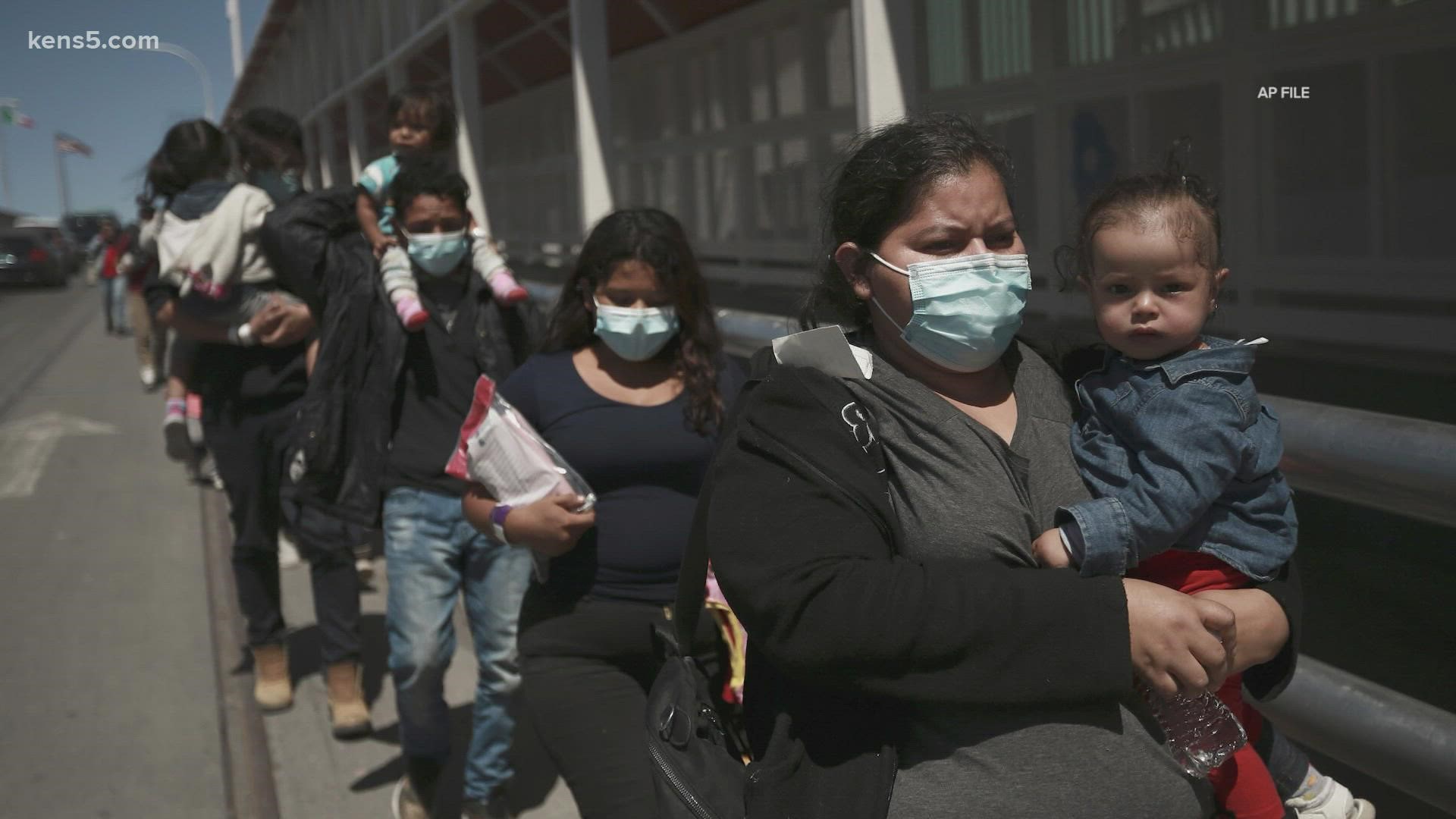WASHINGTON, D.C., USA — On Tuesday the State of Texas and the Biden administration took their fight over a controversial immigration policy to the highest court in the land.
Texas leaders addressed the Supreme Court, asking justices to preserve the so-called "remain in Mexico" program, also known as the Migrant Protection Protocol. First enacted by former President Donald Trump in 2019, it forces asylum-seekers to wait for their U.S. court date outside the country.
Texas and Missouri sued to keep the program. In Mexico, however, the International Organization for Migration (IOM) has been providing humanitarian support to those in need of it—and speaking out against the policy.
"It doesn't give an appropriate way for asylum-seekers to be able to seek refugee status in the United States," said Dana Graber Ladek, chief of mission for IOM. "In addition to that, it returns individuals under the MPP to Mexico, which in and of itself can put them in a pretty dangerous situation."
The Biden administration ended MPP shortly after the 2020 election, but a lower-court decision forced its restart on a much smaller scale. Texas Attorney General Ken Paxton's argument for keeping the policy in place is simple: he says Border Patrol is overwhelmed.
"They're having to manage hundreds of thousands of people crossing the border every month," he said. "What that means is those border agents are not protecting the borders the way they would against the importation of drugs. We know that the Trump administration successfully implemented the program."
But Ladek says sending asylum-seekers back to "sometimes very insecure environments" doesn't fix the issue.
"I would not say that is successful by any means," she said. "What the United States needs is the ability for these individuals to process their migratory status in a fair, transparent way."
In a statement to KENS 5, a spokesperson for the Department of Homeland Security said the program has "endemic flaws, imposed unjustifiable human costs, pulled resources and personnel away from other priority efforts, and failed to address the root causes of irregular migration."
"Though DHS is implementing MPP in good faith as required by a court order, the Department hopes that the Supreme Court will overturn the lower courts’ rulings and allow Secretary Mayorkas to exercise his discretion to implement his policy decision to end MPP," the statement goes on to read.
The Supreme Court is expected to issue its decision sometime this summer.

